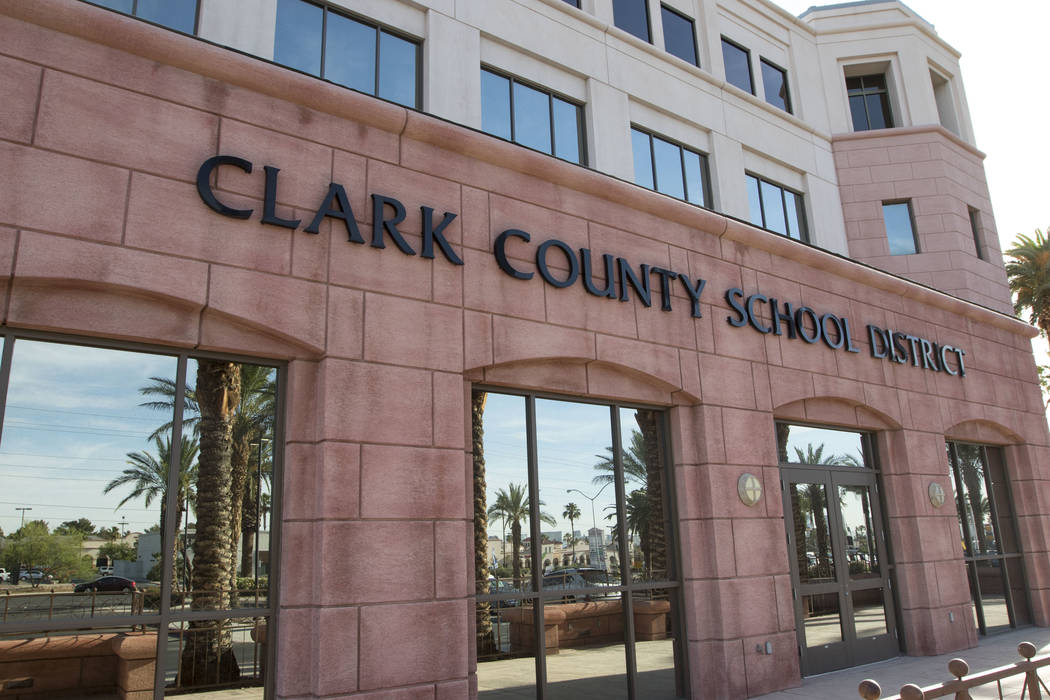Unpacking the reorg: Q&A on parents’ most pressing questions
Who makes decisions about curriculum, like Common Core?
The school organizational teams will have input at their schools on which instructional materials should be used. Schools must use materials that align with state standards — which are Nevada’s version of the Common Core — and comply with state law. Schools can use different sources to reach the same standards, which could affect students if they switch schools mid-year.
How will this affect class selection, such as Advanced Placement courses?
Course offerings have always been a school-level decision, according to the district. As a result of the reorganization, however, the school organizational teams will have more input on the selection.
Who will hold principals accountable for decisions? Who will ensure school organizational teams don’t hijack school policy-making?
School associate superintendents oversee the schools in their “performance zone.” The law states that if a organizational team disagrees with the school’s plan of operation, it can take that issue to the associate superintendent. If the associate sides with the principal, the team can appeal to the superintendent.
Parents or staff not on the organizational team can attend meetings to voice concerns and reach out to their associate superintendents with issues.
What, exactly, are school organizational teams supposed to do? There is so little money left for discretionary spending, it seems like an exercise in futility.
Technically, the organizational teams help create the school’s budget, plan of operation and participate in other school-based decisions.
“It’s really about shared governance and shared decision-making,” Chief Academic Officer Mike Barton said. “Principals need to expect it’s the day and age of ultra transparency.”
How will the district protect against underfunding underprivileged schools?
Two state programs — Zoom and Victory — target schools with high populations of English language learners or impoverished students. The Zoom and Victory money goes to these schools, in addition to regular funding. According to the district:
— 31 Zoom schools will receive $38.7 million this school year.
— 22 Victory schools will receive amounts ranging from $25,835 to $3,269,897 per school, as determined by the Nevada Department of Education.
How will schools budget for more experienced teachers?
The school’s budgets are built using an average cost per teacher, a requirement under state law. The average cost includes salaries and benefits. Right now, the district does not report any issues with using average salaries. By July 2018, the Department of Education will assess whether schools should continue budgeting for staff using average cost per person.
Will zoning change?
Zoning was not affected by the new law. Principals will continue to have the power to individually grant zone variances to students, which allow parents to send their children to a different school.
What about magnet schools?
The magnet school enrollment process won’t change under the new law. Enrollment is based on applications. If there are more applications than seats available, a random lottery will be used. Magnet schools are funded similarly to traditional schools and will also build a strategic budget.
How will weighted student funding be determined?
Schools eligible for extra state funding will have a separate column in their budgets to track how the funds are spent. Clark County will receive $34.2 million this year for English language learners or those who qualify for free or reduced lunch. That works out to $1,200 per student, but is only available to those who score in the bottom 25 percent on standardized tests and who are not in a Victory or Zoom school. This year, funding amount was determined by the state and then distributed to the district and the individual schools.
Are school organizational team members required to be a part of their union?
By law, 50 percent of teachers and all support staff members on a School Organizational Team are required to be part of their respective unions. The teachers union says it had no issues meeting that requirement. With support staff, if no union members were interested in the position, non-union members were elected to serve on some teams.
What will the Board of Trustees control?
The Board of Trustees is still responsible for making policies and high-level decisions that direct the educational vision for the district, according to the district. The board retains the power to hire and direct the superintendent to execute policies. The trustees also still oversee a general operating fund budget of more than $2.4 billion.
Will this actually improve our school system?
That’s the million-dollar question. We’ll just have to wait and see.






















